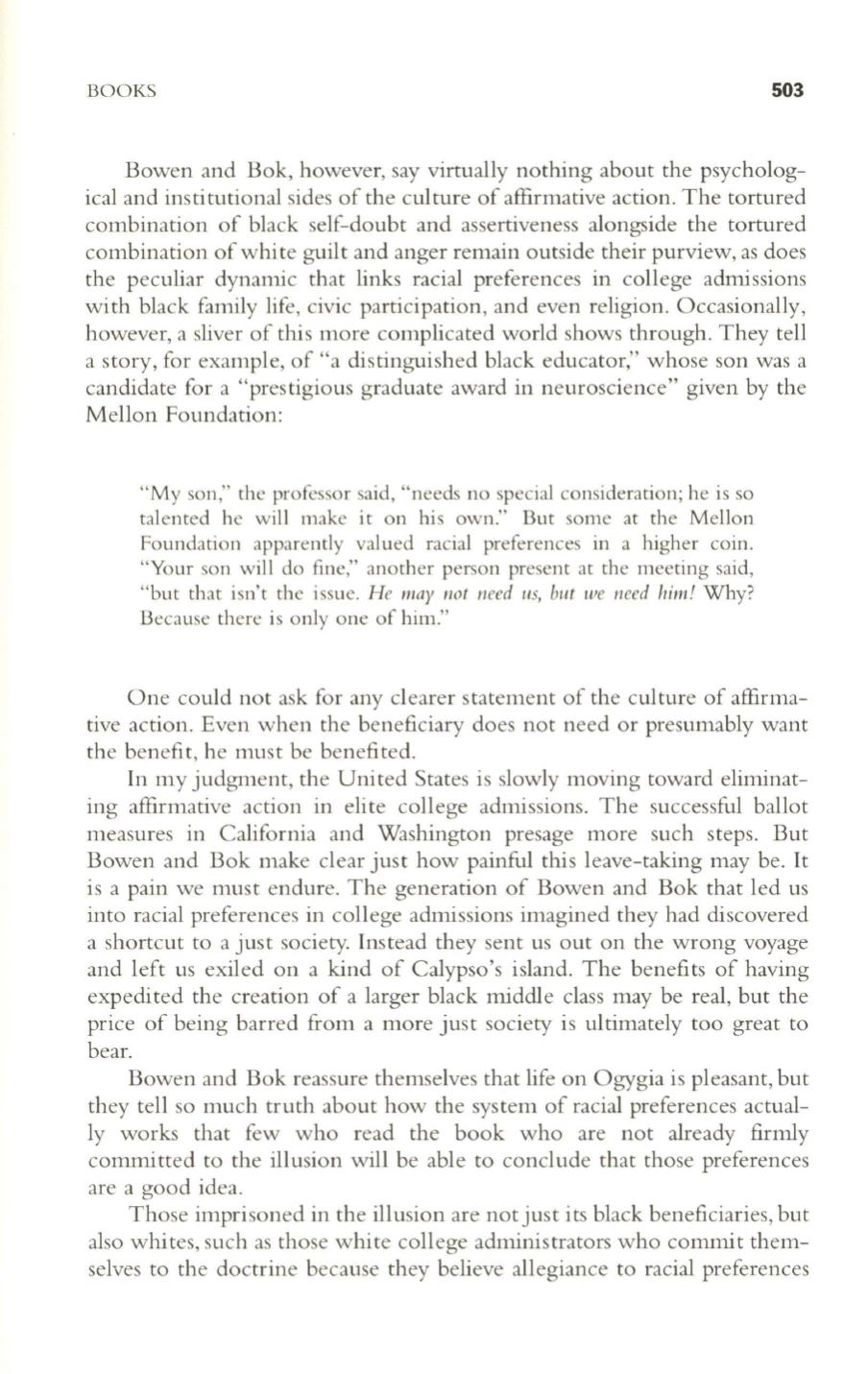
BOOKS
503
Bowen and Bok, however, say virtually nothing about the psycholog–
ical and institutional sides of the culture of affirmative action. The tortured
combination of black self-doubt and assertiveness alongside the tortured
combination of white guilt and anger remain outside their purview, as does
the peculiar dynanuc that links racial preferences in college adn-ussions
with black fanlliy life, civic participation, and even religion. Occasionally,
however, a sliver of this more complicated world shows through. They tell
a story, for example, of "a distinguished black educator," whose son was a
candidate for a "prestigious graduate award in neuroscience" given by the
Mellon Foundation:
"My son," the professor said, "needs no special consideration; he is so
talented he will make it on his own." But some at the Mellon
Foundation apparently val ued racial preferences in a higher coin.
"Your son will do fine," another person present at the meeting said,
"but that isn't the issue.
He may /lot need
'''5,
but we need him!
Why?
Because there is only one of him."
One could not ask for any clearer statement of the culture of affirma–
tive action. Even when the beneficiary does not need or presumably want
the benefit, he must be benefited.
In my judgment, the United States is slowly moving toward elin-unat–
ing affirmative action in elite college adn-ussions. The successful ballot
measures in California and Washington presage more such steps. But
Bowen and Bok make clear just how painful this leave-taking may be. It
is a pain we must endure. The generation of Bowen and Bok that led us
into racial preferences in college adn-ussions imagined they had discovered
a shortcut to a just society. Instead they sent us out on the wrong voyage
and left us exiled on a kind of Calypso's island. The benefits of having
expedited the creation of a larger black n-uddle class may be real, but the
price of being barred from a more just society is ultimately too great to
bear.
Bowen and Bok reassure themselves that life on Ogygia is pleasant, but
they tell so much truth about how the system of racial preferences actual–
ly works that few who read the book who are not already firmly
con1lTlitted to the illusion will be able to conclude that those preferences
are a good idea.
Those imprisoned in the illusion are not just its black beneficiaries, but
also whites, such as those white college administrators who comnUt them–
selves to the doctrine because they believe allegiance to racial preferences


